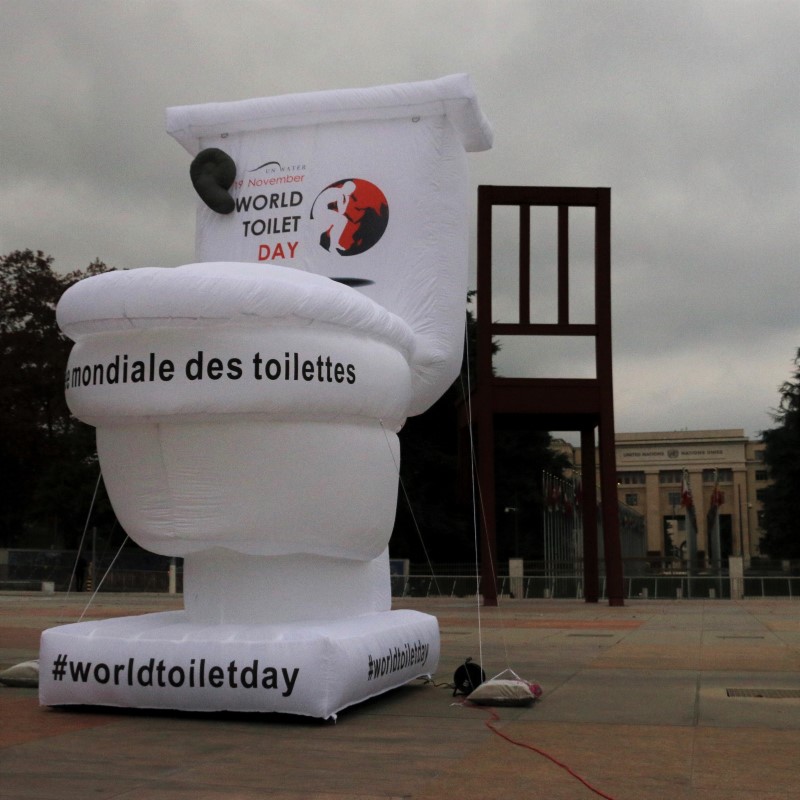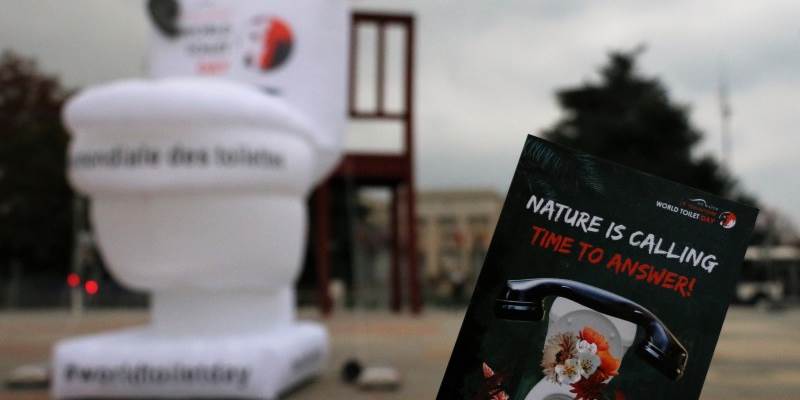As much as the giant toilet causes smiles and some giggles, it most importantly offers the opportunity for contemplation. Contemplation on a sanitation crisis that is largely forgotten. A crisis that affects 4.5 billion people worldwide. Going to the toilet – which we take for granted – is a daily struggle for billions.
Access to adequate water and sanitation facilities are fundamental to the health, economic and social development, and prosperity of people worldwide. Without it, we will not be able to live up to Agenda2030. With 60 percent of the world population living without a toilet at home or with one that does not safely manage faeces, we are facing a global sanitation crisis.
This crisis goes beyond the home. Lack of access to female-friendly public and community toilets poses significant restrictions on women and girls’ rights. Almost 450 million women and girls defecate in the open, making them at risk of harassment and sexual violence.
One fifth of schools worldwide do not provide any toilet facilities. When there are no safe toilets and private hygiene facilities in schools, menstruating girls tend to stay at home – or drop out altogether upon reaching puberty. This is a missed opportunity that needs to be addressed. When nature calls, we need to respond. However, toilets and faeces are not particularly ‘attractive’ topics, and menstruation and women and girls’ intimate hygiene are in most cultures subject to taboo. Through awareness-raising and an open dialogue, this might change.
Health and education form the core of Norway’s international development work. Ensuring girls’ participation in education is foundational to their autonomy, their development, and their empowerment. Ensuring accessible and safe sanitation facilities in schools is instrumental to this end. It is estimated that girls’ participation in education increases by 11% when schools install toilets.
Indeed, a toilet can make a big difference. To reach the Sustainable Development Goals on clean water, good health, education for all, and gender equality, the world needs more and better managed toilets. The good news is that they are not very difficult nor costly to build. Norway commends the innovation that is being done to develop sustainable and technical solutions to meet the water and sanitation challenges.
The forgotten global sanitation crisis is everyone’s business, and the World Toilet Day is a strong reminder of this.

Written by Anette Bjørnsen Wig
